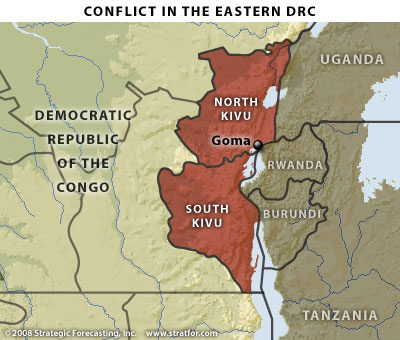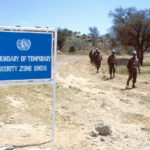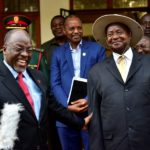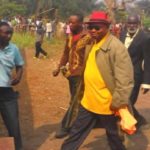The governor of Democratic Republic of Congo’s restive eastern province of Nord-Kivu urged the army to beef up operations against a spate of militia attacks there, saying all-out war may be imminent.
“I am alerting in particular the army chief of staff to refocus its strategy after these new incursions. There is a looming threat of a fresh war,” Julien Paluku told a press conference.
An unprecedented string of attacks in the last few days against border posts and army positions in DRC’s troubled east have been attributed to the Mai-Mai, a ‘self-defence’ militia comprising members of several ethnic groups in the region.
But Paluku said ‘these repeated attacks in Beni far exceed the capabilities of the Mai-Mai’, instead they suggest the involvement of ‘another force’ supporting the unidentified militia groups.
His warning raises bitter memories of DRC’s two wars, in the late 1990s and early 2000s, which dragged in at least six African armies and left more than three million dead and 1.6 million homeless, Africa’s worst conflict in recent history.
On Monday the Kasindi border post on the Ugandan border was attacked by a Mai-Mai militia group previously unknown to the authorities, an army spokesperson said.
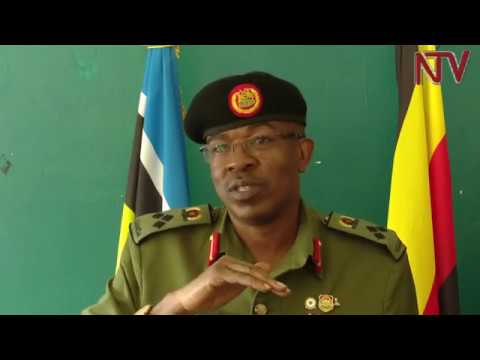
And contacted over the matter Uganda Peoples Defence Forces (UPDF) Spokesman Brigadier Richard Karemire could not respond, as he said he was attending a function.
Meanwhile, in a related development, the DRC forces said on Tuesday there was an attack against an army position at Kalau and on Wednesday the army again came under attack at Nyamitale by assailants believed to be Mai-Mai.
There were clashes also last weekend in Nord-Kivu, in Kaseghe, where ‘the Mai-Mai (militia)’ attacked government troops, said an army spokesperson.
During the second civil war in the Democratic Republic of Congo (1998-2003), a number of groups were armed by the ruling power to fight invading Ugandans and Rwandans – and several groups never disarmed.
Kaseghe is located in the Lubero territory neighbouring Beni where a series of deadly clashes have taken place over the past year.
Sixteen people were killed early this month near Beni in clashes between the army and a suspected Mai-Mai group – though its presumed spokesperson describes it as a national revolutionary movement opposed to the regime of President Joseph Kabila.
Kabila has been in power since 2001 when he succeeded his father. He was elected president in 2006 and 2011 and his second mandate expired in December.
But the 46-year-old leader has refused to step down fuelling a political crisis in the vast central African country. Elections are now supposed to be held by the end of this year.




